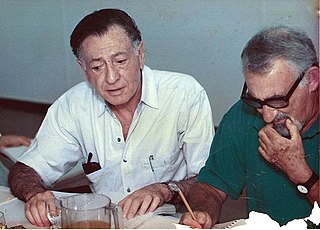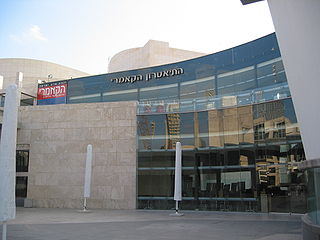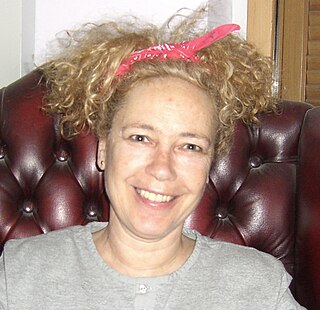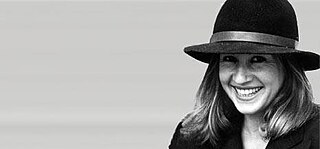Motti Lerner (born September 16, 1949) is an Israeli playwright and screenwriter. [1]
Contents
- Early life
- Education
- Life and career
- Work
- Plays
- Television and film scripts
- Bibliography in English
- Awards
- References
- External links

Motti Lerner (born September 16, 1949) is an Israeli playwright and screenwriter. [1]

He was born in Zikhron Ya'akov, a village south of Haifa, in Israel. His great-grandparents immigrated to Palestine in 1882 from Romania and Russia, and became farmers.
He was educated at the local and regional schools. In 1967-1970 he studied mathematics and physics at The Hebrew University of Jerusalem. In 1975 he began studying theatre at the Hebrew University, and continued in theatre workshops in England and the San Francisco Dancers' Workshop in San Francisco (1976)
In 1977-78 he founded and directed the Maduga Experimental Theater, as part of The Jerusalem Theater, where he produced experimental and street performances. From 1978 to 1984 he was a dramaturge and director at the Jerusalem Khan Theatre, where he directed his own play The princess and the Hobo, Gotcha by Barrie Keeffe, and Magic Afternoon by Wolfgang Bauer. He began writing plays and film scripts in 1984 and moved to Tel Aviv. Since 1986 he has taught playwriting at the Drama School of the Kibbutzim College of Education in Tel Aviv. From 1992 to 2007 he taught political playwriting at Tel Aviv University. In 1992 he wrote his first television play, Loves at Betania which was produced by Israel's Channel 1. In 1993 he was a visiting professor at The Oxford Centre for Postgraduate Hebrew and Studies, in 1997 was a visiting professor at Duke University Theater Program in North Carolina, and in 2006 and 2007 was a visiting professor at Knox College, Illinois. Motti Lerner is one of the pioneers of radical political theatre in Israel, and one of the country’s leading writers of documentary drama and television docudramas. In the 1980s and 90s, his plays Kastner, Pangs of the Messiah, and Pollard, and the documentary drama serials The Kastner Trial and Bus No. 300, placed him at the center of the Israeli theatre and television milieu, and aroused public debate on subjects at the heart of Israel’s political and ideological life: the Holocaust, the occupation of Palestinian territories, Israeli society’s moral ethos, and Israel-Jewish Diaspora relations. In 1997, The Municipal Theatre of Heilbronn, Germany, staged The Murder of Isaac, a play about the assassination of Israeli Prime Minister Yitzhak Rabin. To date the play has not been produced in Israel, following claims that it is anti-Semitic. During a Knesset plenum debate, several Knesset members demanded that the government request from the German government that it close down the play. The Israeli government rejected this demand. Following The Murder of Isaac Lerner’s writing became more radical. Israeli theatres rejected many of his new plays, and staged only those not dealing with controversial political issues, such as Hard Love, (Haifa Municipal Theatre, 2003), and Passing the Love of Women, (Habima National Theatre, 2004). His more controversial plays have been staged successfully in Europe and the US, including Coming Home, Pangs of the Messiah, The Murder of Isaac, and Benedictus. [2] Since 2016 he has been writing mainly for Habima National Theatre in Tel Aviv, and his plays are produced there frequently.
From Prof. Gad Kaynar's preface to Seven Plays by Motti Lerner (published by Tel Aviv University, 2009): “The illusion that we can save the world by writing is a vital component in the drive to write”. This title, borrowed from Motti Lerner’s essay ‘Playwriting in Wartime’ expresses the tendentious poetics characterizing Lerner’s dramatic writing, which is presented in the seven plays of this anthology. In the postmodern world of shattering of forms and the sanctification of chaos, of ideological anti-structuralism, of ‘Things fall apart; the center cannot hold’, Motti Lerner, in his writing for stage, screen, and television, is one of the last Mohicans who believe that the world can be rationalized and saved through art, that we must still execute the role of the theatre allotted to it by Hamlet in his monologue to the players: ‘to hold, as ‘twere, the mirror up to nature; to show virtue her own feature, scorn her own image, and the very age and body of the time his form and pressure’. Manifested in each of the plays in this anthology is the firm belief in the ability of theatre to influence reality, to change it by changing the audience’s consciousness. Lerner's theatre is a continuation of the social and political struggle by different means. Therefore, Lerner’s ideational philosophy, as worded in essays, articles, interviews, and lectures, is strongly linked to its theatrical application. This link is accurately reflected in a paragraph from a lecture given by Lerner – the most prominent neo-Aristotelian writer in Israeli drama – at the 2005 Jerusalem Conference: ‘Catharsis is the most profound and effective dramatic tool. There cannot be a good dramatic play that does not contain catharsis. Therefore the Israeli playwright also has to employ it, otherwise his play will be ineffective. The fact that catharsis is a tool borrowed from Greek theatre cannot disqualify its use. The question is not whether or not to use catharsis: the question is how to use it, which values to endow through it. If it is possible through catharsis to endow values of love of man, the centrality of man in our universe, his freedom of choice, his responsibility for his choice, and his sovereignty over his life – then it must be used.’

The Habima Theatre is the national theatre of Israel and one of the first Hebrew language theatres. It is located in Habima Square in the center of Tel Aviv.

Yehoshua Sobol, sometimes written Joshua Sobol, is an Israeli playwright, writer, and theatre director.

Hanoch Levin was an Israeli dramatist, theater director, author and poet, best known for his plays. His absurdist style is often compared to the work of Harold Pinter and Samuel Beckett.

Nissim Aloni was an Israeli playwright and translator.

The Cameri Theatre, established in 1944 in Tel Aviv, is one of the leading theatres in Israel, and is housed at the Tel Aviv Performing Arts Center.

Mohammad Bakri is a Palestinian actor and film director.

Rivka Neumann is an Israeli actress.
Yaakov Malkin was an Israeli educator, literary critic, and professor emeritus in the Faculty of Arts at Tel Aviv University. He was active in several institutions that deal with both cultural and Humanistic Judaism.

Meir Margalit was an Israeli stage actor.

Micah Lewensohn (Hebrew: מיכה לבינסון, was an Israeli theater director and actor.

Orly Silbersatz-Banai is an Israeli actress and singer. She has won two Ophir Awards and a prize from the Israeli Academy of Cinema and Television.

Shmuel "Shmulik" Vilozny is an Israeli comedian, actor and director as well as a political activist.
Shulamit Lapid is an Israeli novelist and playwright.

Shmuel Rodensky was a Russian-born Israeli actor whose stage, film, and television career in Israel and West Germany spanned six decades. He immigrated to Mandatory Palestine in 1924 and studied drama at the Eretz Israel Theatre in Tel Aviv. After performing with several theatre companies between 1928 and 1948, he joined Habima Theatre in 1949 and became one of its principal players. He was known as "the Israeli Laurence Olivier". In 1968 Rodensky traveled to Hamburg to join the German-language production of Fiddler on the Roof, playing the lead role of Tevye the Dairyman. He performed this role more than 1,400 times throughout West Germany and Switzerland. His notable film roles include the lead in the 1968 Israeli film Tevye and His Seven Daughters, Simon Wiesenthal in the 1974 Anglo-German film The Odessa File, and Jethro in the 1974 BBC television miniseries Moses the Lawgiver. He was the recipient of numerous honors in both Israel and West Germany, including the Federal Service Cross from the Federal Republic of Germany and the Israel Prize.
Ofira Henig is an Israeli theater director. She has served as the artistic director of Jerusalem's Khan Theatre, the Israel Festival, The Laboratory in Jerusalem, and the Herzliya Theater Ensemble.

Kobi Farag is an Israeli actor and filmmaker.

Amit Rahav is an Israeli actor.

Yaron Edelstein is an Israeli playwright and theatre director. His plays performed in Israel, Germany and Italy, and have been translated into English, French, Polish, Dutch and Italian. Edelstein won the Cameri Theater Best Playwright Award (2021), the Israeli Fringe Award for Best Director and Best Dramatic Adaptor (2010), the Acre Festival prize for Best Original Show (2013), and in Germany, he received an award at the Heidelberger Stückemarkt for his play Mountain. Among his original plays are Ringo, The Ephemerals, Mountain, Pfffffff.

Dedi Baron is an Israeli theatre and opera director who works and creates in Israel, Germany, Australia and teaches directing and acting.

Hadar Galron is an Anglo-Israeli playwright, screenwriter, comedian, director, actress and teacher of dramatic writing at several Academic Institutes.